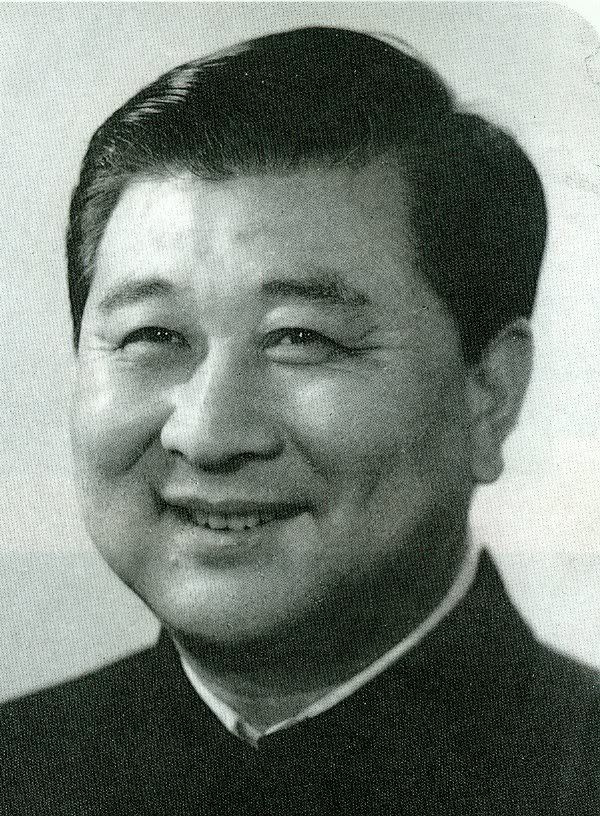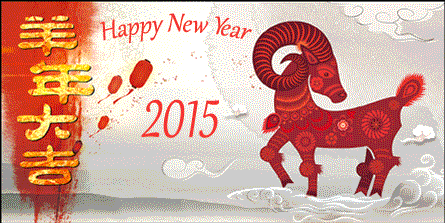Friday, January 30, 2015
关于我们 About Us
中国鹤翔庄气功简称鹤功,我们是一群鹤功的爱好及修炼者,我们的练功时间:每星期一及四从晚上八点至九点半,地点是甲洞帝沙华文小学之食堂前。欢迎各界参与我们的练功活动,请光临多多指教。
We practice twice weekly on every Monday and Thursday from 8:00 pm to 9:30 pm at our station located at SRJK (C) Taman Desa Jaya, Jalan 31, Taman Desa Jaya, 52100 Kuala Lumpur. You are welcome to join us in our practice.
通告 Notice
30-01-2015农历新年假期
Chinese New Year Stoppage of Practice Sessions
From 15-02-2015 to 28-02-2015. Back to normal from 02-03-2015.
19-01-2014
农历新年假期
Chinese New Year Stoppage of Practice Sessions
From 24-01-2014 to 09-02-2014. Back to normal from 10-02-2014.
17-12-2012
第十五次“以茶会友”茶会
The 15th “以茶会友” tea party
日期 Date: 20-12-2012 (星期四 Thursday)
请大家踊跃出席。
19-03-2012
第十四次“以茶会友”茶会
The 14th “以茶会友” tea party
日期 Date: 19-04-2012 (星期四 Thursday)
请大家踊跃出席。
09-02-2012
2012年甲洞帝沙鹤功輔導站之常年晚宴
Kepong Station's 2012 Annual Dinner
日期 Date: 18-02-2012 (星期六 Saturday)
时间 Time: 7pm
地点 Venue: 富临酒楼 Full Wealth Restaurant, Kepong Baru
费用 Fees: RM30.00 per person for Kepong Practitioner & RM50.00 for others
请大家踊跃出席。
09-01-2012
农历新年假期
Chinese New Year Stoppage of Practice Sessions
From 17-01-2012 to 01-02-2012. Back to normal from 02-02-2012.
03-11-2011
第十三次“以茶会友”茶会
The 13th “以茶会友” tea party
日期 Date: 10-11-2011 (星期四 Thursday)
请大家踊跃出席。

赵国庆老师(中国鹤翔庄气功第二代掌门人)
下一班 NEXT INTAKE
二零一二年十一月一日。01-11-2012.
However, interested persons can join anytime.
For enquiry, please call
(after office hours, please):
Mr. KK Chin (013-3312033)
Mr. SK Chan (012-3245835)
Mr. HK Koay (012-3150971)
Mr. CK Yap (016-2598025)
Mr. KS Chia (012-2160698)
Kak Mariah (03-62750905)
Mr. Eric Ho (019-3376128)
Mr. SL Ng (019-3374166)
Current Status of present class:
意念
Mental Focusing

赵金香宗师(创编人)
Grandmaster Zhao Jin Xiang
连接 Links
- Google News
- Google Search
- FACEBOOK - Hexiang
- CSCQ Jasmani Malaysia
- 吉打和槟城辅导站
- 爱华客站
- CSCQ in Brunei Darussalam
- 吉打鹤翔庄气功协会新光学校辅导站
- Hunyuan Qigong
- 爱生云鹤的BLOG
- 中华气功大全网
- 气功养生网
- 鹤翔庄 - 必备网典
- 气功人论坛 » 鹤翔庄
- 株洲鹤翔庄的BLOG
- 鹤翔庄的实践
- 小平的BLOG
- 如兆视野
- 鹤翔万里
- 永不言放弃
- 陈冠宇的博客
- 太极鹤翔的博客
- 我爱鹤翔的博客
- 气功思考
- 鹤翔九重的博客
- 芳草世界 鹤翔日坛
- 嘉云之鹤(重庆)
- 凭海临风
- 狂人日记
- 人体經絡圖
- 人体穴位图
- 气功中的吐音法
- 练鹤功的要求与禁忌
- Preliminary Studies of the Effect of Qigong Therapy on Cancer
- 人體使用手冊Blogspot
- 人體使用手冊--全文
- 人体使用手册-吳清忠's Blog
- Chinese Medicine & Homeopathy (English Version of the above Blog)
- 求医不如求己
- 天道康复
- 杨奕官方博客
- 曲黎敏官方博客
- 中医本色
- <中医之钥>全文
- 神农氏- 傳統中醫藥文化
- 健康貼士 Health Tips Collection
- Interactive Health Tutorials - By Medline Plus
- Mayo Clinic Medical Information
- Web MD
- RealAge
- Revolution Health
- Health - Vital information with a human touch
- Caring.com
- CDC - Centers for Disease Control and Prevention
- Family Doctor
- Mercola - Take Control of Your Health
- TCM Well
- Health by Uncle Teng
- Newsmax Health - Total wellness for a better life
- Arizona Health Sciences Center
- Easy Health Options
- Natural Home Remedies
- 禁食与辟谷
- 学员守则
RULES & REGULATIONS - e-mail us
照片 Photos
录影 Videos
- Singing Presentation
- July 06 Birthday Video
- PHZQWP 5th Anniversary
- CSCQ at Malaysian Book of Record
- Kepong Station 2nd Anniversary
- NTV7 News on Malaysian Largest Fitness Clinic
- August 06 Birthday Video
- 甲洞功友学习开智明目功
- 中秋节快乐(2006)
- September 06 Birthday Video
- 六方和合 Routine 1 Demo
- 柱地通天 Routine 2 Demo
- October 06 Birthday Video
- Testimonial of Kak Mariah
- November 06 Birthday Video
- 鹤首通关 Routine 3 Demo
- 仙鹤点水 Routine 4 Demo
- December 06 Birthday Video
- January 07 Birthday Video
- 混元归一 Routine 5 Demo
- 甲洞功友示范五节动功
5 Routines Demo by Kepong Practitioners - 11-03-2007 Dinner Video
- 金丹朝阳
- 甲洞功友示范 - 仙鹤点水
- 香透满月
- 光辉普照

赵金香宗师
Grandmaster Zhao Jin Xiang
练功常识问答
(转接至其他网站)
- 什么是“气功”?
- 什么叫内视?
- 什么叫信息和气功信息疗法?
- 什么叫“性功”和“命功”?
- 什么叫“顺呼吸”?
- 什么叫“逆呼吸”?
- 什么叫“胎息法”?
- 精、气、神练好的标准是什么?
- “中国鹤翔庄气功”名称的涵义是什么?
- 鹤功的主要特点是什么?
- 练鹤功要注意什么?
- 学练鹤功怎样陶冶性情?
- 练鹤功在调动主观能动性方面应做到哪些?
- 鹤功的动功和站桩功的基本原则是什么?
- 动功与站桩功的作用有什么不同?
- 有的人只练站桩自发功,不练动功这样能收到治病快的效果吗?
- 练鹤功是否容易出偏?
- 鹤功治病的机理是什么?
- 鹤功治疗哪些病有效?
- 鹤功对治疗癌症是否把握?
- 患腰椎间盘突出症及颈椎病可否练鹤功?
- 患美尼尔氏综合症及癫痫病可否练鹤功?
- 大出血病人是否可练鹤功?
- 头疼病患者是否可练鹤功?
- 截肢、瘫痪病人是否可练鹤功?
- 练鹤功是否能治疗皮肤病?
- 为什么精神分裂症、严重神经官能症患者及有此类病家族史的人暂不宜练动功与站桩功?
- 气功与催眠术有什么不同?
- 练功是否可以配合针灸治疗?
- 练功是否可以配合药物治疗?
- 为什么有的人练功很认真,而疗效并不显著?
- 为什么不能同时练两种功法?
- 练功穿什么鞋合适?
- 在室内、外练功的效果是否一样?
- 应当怎样选择适于练功的树木?
- 什么时间是练功的最佳时间?
- 练功和冷水浴有无矛盾?
- 高血压病患者练功应注意什么?
- 容易惊恐的人练功时应注意什么?
- 练功中受到惊吓怎么办?
- 练功怎样人静?
- 为了人静,站桩时可否配上轻音乐?
- 为什么看去很有修养的人有时练功也难人静?
- 对女子练功有什么规定?
- 男、女小周天有无区别?
- 练功中为何有时会胸部憋闷?应如何处理?
- 有人练功后出现腹泻是什么原因?
- 为何有人练功后明显改善了食欲和睡眠,过一段时间又变差?
- 为什么有的人常有肌肉跳动感?
- 为什么有的人练功前胃酸不足,练功后增多?
- 为什么有的人练功后有失眠尿频现象? 失眠尿频更严重应该怎样解决?
- 为什么有的人练功后出现睡不着的现象?
- 为什么有的人练功后出现头部不适?
- 夜间醒来自我按摩好不好?
- 有的人练功后身上发痒,为什么不让搔?
- 练功中,为什么有时一想到头头就发沉,一想到胸胸就发闷?
- 肾虚病人练功出汗多是什么原因?
- 有的人练功后手上带电,好不好?
- 为什么有的人练功时两手的气感不一样强?
- 为什么有的入练功时左腿不热右腿热?
- 有的人练功丹田不热也不动,应该怎么办?
- 为什么有的人练功时丹田时冷时热?
- 为什么有的人练功时腰背都热而丹田反凉?
- 丹田发热后,可否引导其转动?
- 有的人练功一段时间后,出现丹田发热、发胀、发紧或转动等现象,应怎样对待?
- 有的人练功后承灵穴要开未开,引起头痛、气闷、无力,应怎样处理?
- 应如何防止练功时,前、后阴漏气?
- 有的人练功中气冲上头,口干舌燥,应怎么办?
- 百会穴练开了应怎样保护?
- 为什么有的女子练功后发生闭经现象,停练后又恢复正常?
- 为什么有的女子练功后月经过多,或有白带,有的男子梦遗、滑精,或想大小便?如何解决?
- 为什么气功练到一定程度之后,男、女都会有性欲增强、兴阳次数增多的现象?应如何处理?
- 练功中产生幻觉应当如何对待?
- 为什么有的人站桩自发时前走后倒?
- 为什么有的人站桩自发时想走、想跳?
- 为什么有的人站桩自发时大跑、大动?
- 什么是天人合一?
五节动功
THE 5 ROUTINES
自发站桩功
STANDING MEDITATION
- 预备(Yu Bei) Preparation
- 双回气(Shuang Hui Qi)
Double return of Qi - 抱球(Bao Qiu)
Holding a ball of Qi - 顶头悬(Ding Tou Xuan)
Hanging the head from Sky - 坠脊(Zhui Ji)
Relaxing the Spine - 含胸(Han Xiong)
Holding in the Chest - 松肩(Song Jian)
Relaxing the Shoulders - 坠轴(Zhui Zhou)
Sinking the Elbows - 松腕(Song Wan)
Relaxing your Wrists - 疏指(Shu Zh1)
Smoothing out the fingers - 松腰(Song Yao)
Relaxing the Waist - 松胯(Song Kua)
Relaxing the Hips - 垂尾闾(Chui Wei Lu)
Hanging down Wei Lu - 松膝(Song Xi)
Relaxing the Knees - 调足(Diao Zu)
Adjusting the Feet - 气沉丹田(Qi Chen Dan Tian)
Gathering Qi into Dan Tian - 垂帘˜(Chui Lian)
Bringing down the Eyelids - 加意念
Slowly Coming to a Stop - 双回气(Shuang Hui Qi)
Double return of Qi - 收功(Shou Gong)
Finish - 安神合十(An Shen He Shi)
Placing your Hands Together - 动作和意念一定要准确
Movements and mental focus must be accurate - 对自发动作任其自然,决不刻意追求
Spontaneous movements must be really spontaneous instead of artificially induced. - 对自发动作要有自控能力
Self-control in spontaneous movements may be needed at times. - 站庄过程要自始至终保持松静自然,切忌精神紧张
Relaxation is preferable to nervousness in the standing meditation. - 正确对待幻觉
Adopt a positive attitude toward hallucinations - 站庄时间长短与次数要适当
Be comfortable and happy about the time and frequency of practice
站庄功口令十七条
17 instructions for the Standing Meditation
Finishing the Standing Meditation
Points to be followed with great attention in Standing Meditation
辅助功法之功理
EXPLANATION FOR REMEDIAL ROUTINES
- 疏肝法(Su Gan Fa)
Discharging Turbid Substance from the Liver - 降压法(Jiang Ya Fa)
Method of Lowering High Blood Pressure - 点穴降浊法(Dian Xue Jiang Su Fa)
Touching Acupoint to Descend Turbid Substances - 引气归元法(Yin Qi Gui Yuan Fa)
Guiding Qi Back to Its Origin - 八方引气归元法(Ba Fang Yin Qi Gui Yuan Fa)
Guiding Qi Back to Its Origin from 8 Directions - 左四右三回阳法(Zho Shi You San Hui Yang Fa)
Left Four & Right Three Method of Returning Yang Qi - 五心归一法(Wu Xin Gui Yi Fa)
Method of Returning Five Centres to Oneness
Previous Posts
- Routine 1 by Grandmaster Zhao
- 2015年甲洞帝沙鹤功輔導站之常年晚宴Kepong Station's 2015 Annual Di...
- 学练鹤功怎样陶冶性情?
- “中国鹤翔庄气功”名称的涵义是什么?
- 什么叫信息和气功信息疗法?What is “Information” and “Qigong Inf...
- 新年假期 Chinese New Year Holidays 2015
- 新年假期 Chinese New Year Holidays
- A cuppa of black tea does wonders for your health
- 周立波健康語錄
- Black rice is the new cancer-fighting superfood, c...
Archives
- January 2006
- February 2006
- March 2006
- April 2006
- May 2006
- June 2006
- July 2006
- August 2006
- September 2006
- October 2006
- November 2006
- December 2006
- January 2007
- February 2007
- March 2007
- April 2007
- May 2007
- June 2007
- July 2007
- August 2007
- September 2007
- October 2007
- November 2007
- December 2007
- January 2008
- February 2008
- March 2008
- April 2008
- May 2008
- June 2008
- July 2008
- August 2008
- September 2008
- October 2008
- November 2008
- December 2008
- January 2009
- February 2009
- March 2009
- April 2009
- May 2009
- June 2009
- July 2009
- August 2009
- September 2009
- October 2009
- November 2009
- December 2009
- January 2010
- February 2010
- March 2010
- April 2010
- May 2010
- June 2010
- July 2010
- August 2010
- September 2010
- October 2010
- November 2010
- December 2010
- January 2011
- February 2011
- March 2011
- April 2011
- May 2011
- June 2011
- July 2011
- August 2011
- September 2011
- October 2011
- November 2011
- December 2011
- January 2012
- February 2012
- March 2012
- April 2012
- May 2012
- July 2012
- August 2012
- September 2012
- October 2012
- December 2012
- January 2013
- February 2013
- March 2013
- December 2013
- January 2014
- January 2015
- February 2015
- March 2015
- September 2015
第一,要有信心。首先要相信自己,另外相信功法。因为,气功是探索人体奥秘、生命信息的一门科学;气功锻炼是一种特殊的锻炼方法,它的独特作用是调动人体潜能进行自我调整, 自我修复的。用气功锻炼来治疗一些慢性病和疑难症,要相信自己经过刻苦练功,一定能治好病,能增强体质。
第二,要有决心。就是不怕苦,不怕累,遇到困难要坚定信心,下定决心,克服一切困难,决心练出成果来。要克服时间少、工作忙、家务多的困难。特别遇到气冲病灶,病情反复时, 更要坚定信心,下决心继续练功。
第三,要有恒心。练功要持之以恒,贵在坚持,不要三天打鱼两天晒网,更不能随便中断,或稍一见好就收兵不练,须知中断练功,会使前功尽弃,把已经启动的真气在正常的运转中停止, 可能使经络重新堵塞不通,病情就可能有反复。要相信“功夫不负有心人”,“功到自然成”,坚持数年,水到渠成,必有成效;急于求成,就会“欲速则不达”。“一劳永逸”是不会有的。
The practice of Qigong is for the strengthening of our body and curing of diseases. To make it effective, we will have to satisfy the following 3 requirements:
(1) We must have trust. Firstly, we must have trust in ourselves and secondly, we must have trust in Qigong. Qigong is a science that explores the secrets of our human body and life messages. Its special effects exploit our body’s potential and bring about self curative measures. We will have to trust ourselves in the use of Qigong practice for the curing of chronic diseases. Believe that through persistent and consistent Qigong practice, these diseases will certainly be cured together with the improvement in the quality of our physical body.
(2) We must have determination. We must not be afraid of hardship and tiredness. In times of difficulties, we have to stay firm in our determination to overcome all difficulties. We must be determined to bring positive results to our Qigong practice. Overcome the little time we may have owing to our busy work schedules and household chores. Especially when we encounter recurrence of the diseases we used to have due to the flow of Qi in our Qigong practice, we must stay firm and continue the practice without interruptions.
(3) We must be persistent. Qigong practice needs persistency and perseverance in order to achieve good results. Do not simply interrupt the Qigong practice or stop practicing when we feel better. This brings about the wastage of our previous efforts as when the genuine Qi in your body is stopped when it is about to work. This may also cause blockages in the meridians and channels. As a result, the diseases recur. Believe that Qigong will never let you down and success will eventually arrive. Be persistent in our practice for several years and good results will be achieved. Do not be in a hurry to achieve success as the negative may result. There is no such thing as "once and for all".



